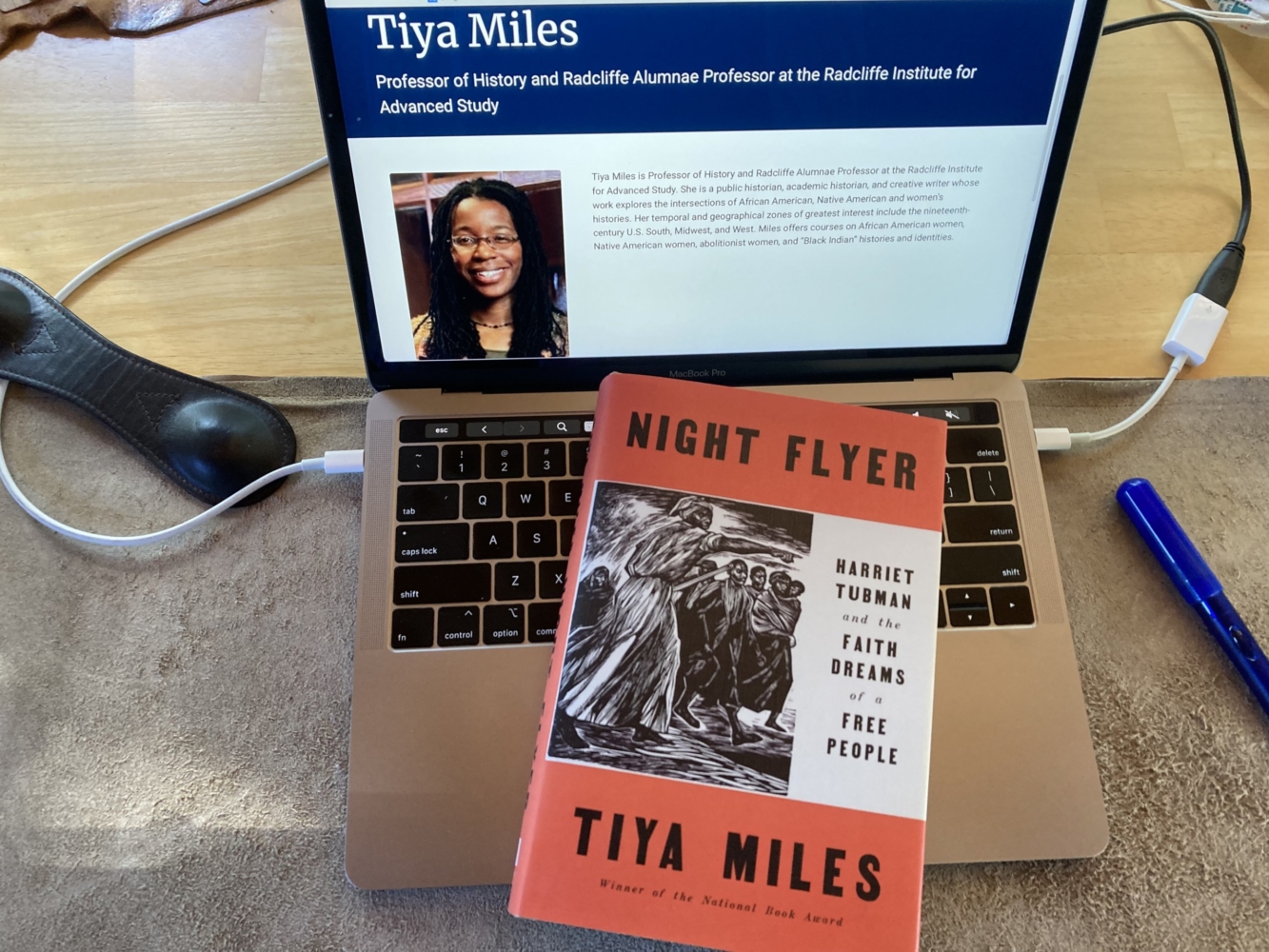A book review in The New Yorker (June 24, 2014) by Casey Cep alerted me to two new biographies of Harriet Tubman. I’ve heard her name as a hero of the Underground Railroad, but, sadly, my education was criminally deficient in Black History. After reading Cep’s review I knew it was time to catch up. The first biography is Combee by Edda L. Fields-Black that tells the dramatic story of an episode in Tubman’s life in which 700 enslaved people were transported to freedom.
The second book is Night Flyer by Tiya Miles, the Michael Garvey Professor of History at Harvard. “Fields-Black conveys, in elaborate detail,” Cep says, “what America’s Moses [Harriet Tubman’s nickname] did to help abolish slavery; Miles addresses the far more elusive question of why she did it.” Cep says that Tubman’s motivation “comes robed in Scripture and prayer—blinding garments for modern eyes, but Miles helps us see.” Raised in the Black Church herself, and unafraid of spirituality, Miles paints a portrayal of Tubman’s work and life as one infused with trust in God, led and directed by him, and open to the hints of transcendence in song, faith, creation, and the stories of Scripture. It started while she was still enslaved by the cruel and inhuman system of bondage and oppression practiced in the American south.
Harriet suffered physically and psychologically, not knowing if she would rebound and regain her health. Sarah Bradford wrote of this arduous season in Harriet’s life: “As she recovered from this long illness, a deeper religious spirit seemed to take possession of her than she had ever experienced before. She literally ‘prayed without ceasing.’”
From where she lay on yet another sickbed, Harriet Tubman knew Edward Brodess aimed to sell her and sought God’s intervention. “‘I didn’t do nothing but pray for old master,’” Bradford quotes her as saying, “‘Oh Lord convert old master. Change that man’s heart and make him a Christian.’ Soon I heard as soon as I was able to move I was to be sent with my brothers in the chain-gang to the far south. Then I changed my prayer, and I said, ‘Lord, if you ain’t never going to change that man’s heart kill him Lord and take him out of the way…’ Next thing I knew I heard he was dead, and he died just as he had lived, a wicked, bad man.”
Edward Brodess passed away on March 7 of that spring, at age forty-seven. [p.118]
As I read Night Flyer, I was delighted to be introduced to an American hero, who is my sister in Jesus Christ from whom I have much to learn. She lived actively at the Interface, to use a term I like, that border between the visible and invisible aspects of created reality. She didn’t just believe it existed but lived and thought and acted as if it was real, as real as the woods, swamps, and fields through which she led those she was liberating from slavery. She knew God was present with her, and in the stars that guided her, and in the nature through which she risked death to bring freedom to those who had been denied it.
I realize that Tubman’s faith could be easily, mistakenly dismissed as “primitive” or “naïve” or “immature theologically.” Tubman was less concerned about systematic theology as she was in actively trusting God. People’s lives stood in the balance, and she believed God could be trusted. She had a clear sense of calling, a determination to trust God, and a faith that she was willing to live for and die for. And that is the story of Harriet Tubman.
Soon after she had seized her freedom and moved north, Harriet expressed sorrow at what she had left behind the people, as well as the land: “I have no opportunity to see my friends in my native land,” she said. “We would rather stay in our native land, if we could be as free there as we are here.” A deeply compassionate person propelled by her need for relational intimacy as well as her sense of moral duty, Harriet Tubman fought for the ability of all God’s creatures to share this earth in freedom and dignity. Whether or not we hold her religious convictions, we bear witness to the power she unleashed by believing in something larger than herself. Harriet’s love of family, friendship with trees, faith in God, and care for the needy were values united by a tenet of togetherness. She taught those who followed her into the woods to stay close and keep faith despite their fear of what lay behind and what lay ahead on the path. “The Lord had been with them in six troubles, and he would not desert them in the seventh,” Harriet would say. God was with them. She was with them. The stars were with them, too. And wielding the powers of will and spirit, they would persist. [p. 234-235]
Night Flyer taught me a great deal. About the cruel horrors and wickedness of slavery. About the Black church and it’s long tradition of holy women of faith. About the Underground Railroad. About how suffering, pain, risk, oppression, and illness can be accepted by faith as simultaneously evidence of brokenness and evil as well the Lord’s preparation for faithfully fulfilling one’s calling. About Harriet Tubman, whose story brought me to tears, to conviction, and to rejoicing in the grace of God.
Book recommended: Night Flyer: Harriet Tubman and the Faith Dreams of a Free People by Tiya Miles (New York, NY; Penguin Press; 2024) 237 pages + indices + notes.
We recommend you order Night Flyer from Hearts & Minds Books.
Photo credit: the author with his MacBook Pro and iPhone



